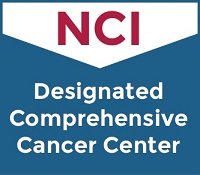Esophageal Cancer Treatment
Esophageal cancer affects the tube connecting your throat to your stomach. If you have a diagnosis of esophageal cancer, your treatment will depend on the stage of your cancer.
Treatment options, often used in combination, may include:
- Surgery (traditional or minimally invasive)
- Chemotherapy
- Radiation therapy
- Cryotherapy
At the University of Maryland Greenebaum Comprehensive Cancer Center (UMGCC), we offer advanced, expert care from a multidisciplinary team of experts. This team is made up of specialists from medical, surgical and radiation oncology as well as other medical fields.
Treatment Options
Our esophageal cancer specialists will partner with you to develop a course of treatment that best suits your condition to ensure the best possible outcome.
Early-Stage Esophageal Cancer
If the cancer is caught at an early stage and does not extend beyond the innermost layer of the esophagus, a surgical oncologist can remove it with an endoscope.
This minimally invasive procedure, called a mucosal resection, often removes a small cancer entirely. After removal, we examine the tissue to see if there are cancer cells around the edge. If so, we may remove a portion of your esophagus.
Esophageal cancer can develop from Barrett's esophagus, a condition associated with gastric reflux, or GERD. This condition is often treated with cryotherapy, which uses the extreme cold of liquid nitrogen to destroy precancerous cells. UMGCC is one of the first centers in the world to use cryotherapy, and we remain a pioneer in this treatment.
If you have early-stage esophageal cancer Stage 0 to Stage I and it is not treatable with other therapies, cryotherapy might be an option for you.
Advanced-Stage Esophageal Cancer
For Stage II and III cancers in which the cancer has spread deeper into the esophageal wall, you may have a combination of chemotherapy, radiation and surgery. Called tri-modal therapy, this approach uses chemotherapy and radiation therapy to shrink a tumor before surgery to remove it. At more advanced stages of cancer, tri-modal therapy offers the best chance for the complete removal of cancer cells.
Another treatment option, often used with surgery, is proton therapy. It uses positively charged particles to kill cancer cells. Unlike X-ray radiation, it causes less damage to other parts of the body.
The proton beam can precisely target tumors while missing healthy tissue in highly sensitive organs such as the heart, lungs and spine.
Advanced-stage esophageal cancer is ideally treated with an operation called an esophagectomy. It removes the portion of the esophagus with the cancer. Surgeons at UMGCCC can offer this procedure either as an open or minimally invasive operation. There are pros and cons to each approach.
However, if you need surgery, recovery is made easier by our dedicated Thoracic Surgery Inpatient Unit (TIMC). The TIMC is the region's first fully integrated unit for patients who have chest operations.Make an Appointment
At UMGCCC, we believe in treating the whole person, not just the disease. Our array of support services help patients and families cope with the stress that accompanies a major illness.
We make every effort to schedule new patient consultations within 24 to 48 hours. To schedule a consultation or refer a patient, call us at 410-328-7904 or at 1-800-888-8823 if outside the Baltimore Metro area.


